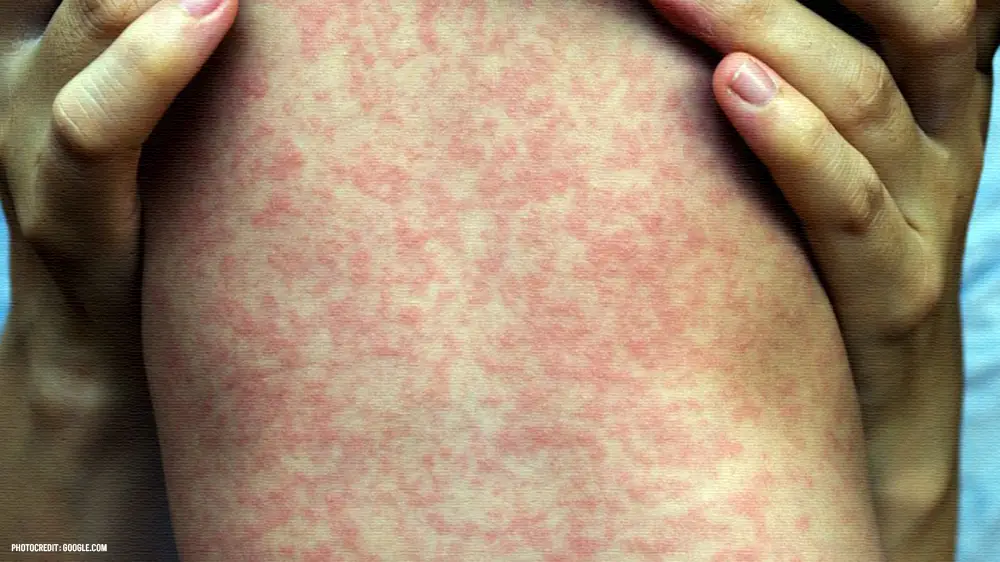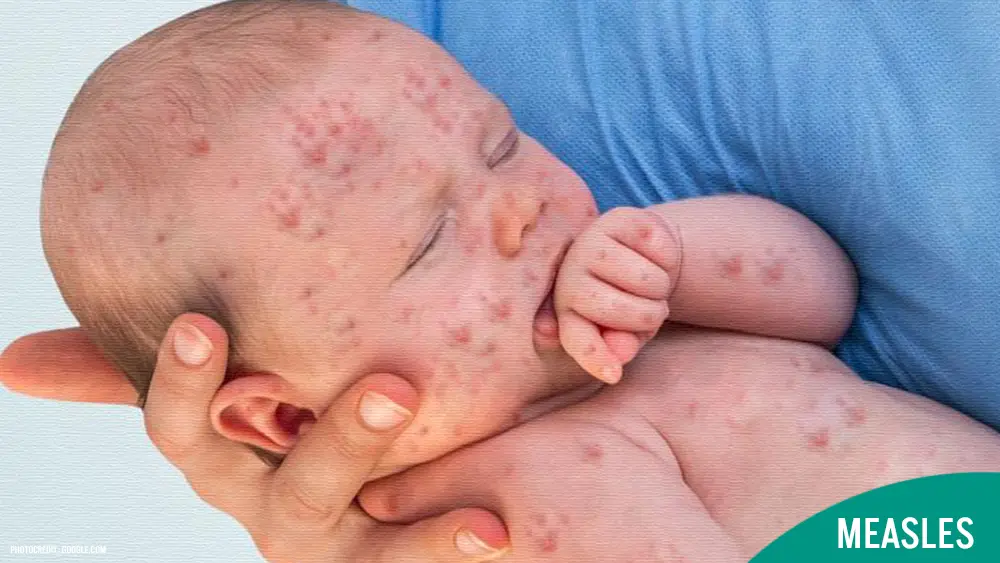Discover the Measles Symptoms and learn about its causes, complications, and prevention methods in this comprehensive article.
What Is Measles:
Measles, also known as rubeola, is a highly contagious viral infection that primarily affects the respiratory system. It is caused by the measles virus and can lead to serious complications, particularly in young children and individuals with weakened immune systems. Understanding the symptoms of measles is crucial for early detection and appropriate management.
Short-term plans are affordable but may lack comprehensive benefits like preventive care or maternity coverage.
Latest Report Of Measles:
The World Health Organization on Tuesday expressed concern over the rapid spread of measles, with more than 306,000 cases recorded worldwide last year – a 79 percent increase from 2022.
“We are extremely concerned about measles globally,” said Natasha Crowcroft, WHO’s technical adviser on measles and rubella.
However, he stressed that measles cases are generally dramatically under-reported, and the real number is certainly much higher.
To get more accurate figures, the UN health agency models the numbers each year, with its latest estimate indicating 9.2 million cases and 136,216 measles deaths in 2022.
Causes Of Measles:
Measles is caused by the measles virus, which belongs to the Paramyxovirus family. The virus is transmitted through respiratory droplets when an infected person coughs, sneezes, or talks. It can also spread by touching surfaces contaminated with the virus and then touching the mouth, nose, or eyes.
Common Measles Symptoms:
Measles symptoms typically begin with a high fever, often accompanied by other symptoms such as a runny nose, cough, and red, watery eyes. One of the hallmark signs of measles is the presence of Koplik spots, small white spots that may appear inside the mouth.
Fever: One of the initial symptoms of measles is a high fever, often reaching temperatures of 101°F (38.3°C) or higher. The fever typically begins several days before the onset of other symptoms.
Cough: A persistent cough is another common symptom of measles. It may be dry or accompanied by mucus.
Runny nose: Measles can cause a runny or congested nose, similar to the symptoms of a cold.
Sore throat: Many individuals with measles experience a sore throat, which can range from mild discomfort to severe pain.
Conjunctivitis (Pink Eye): Inflammation of the eyes, known as conjunctivitis or pink eye, is a characteristic symptom of measles. The eyes may appear red, swollen, and watery.
Koplik’s spots: are small, white spots that may appear inside the mouth, typically on the inner cheeks. They are considered a classic sign of measles and often precede the rash.
Rash: One of the hallmark symptoms of measles is a distinctive rash that typically appears 3-5 days after the onset of other symptoms. The rash usually begins as flat, red spots on the face and then spreads to the rest of the body, including the trunk, arms, and legs. The rash may merge as it spreads, giving the skin a blotchy appearance. It typically lasts for about 5-7 days and is accompanied by fever.
Fatigue: Measles can cause extreme fatigue and malaise, leaving individuals feeling weak and lethargic.
Muscle aches: Some people with measles experience muscle aches and pains, similar to those associated with the flu.
Loss of appetite: Measles can cause a loss of appetite, leading to decreased food intake and potential weight loss.

Less Common Measles Symptoms:
In addition to the common measles symptoms can also cause complications such as diarrhea, ear infections, and pneumonia. These complications can be particularly severe in young children and individuals with compromised immune systems.
Diarrhea: Measles can sometimes cause gastrointestinal symptoms such as diarrhea. This symptom may not always be present, but when it occurs, it can contribute to dehydration, especially in young children. It is essential to monitor fluid intake and seek medical attention if diarrhea persists or worsens.
Conjunctivitis (Pink Eye): Inflammation of the conjunctiva, the thin tissue that covers the white part of the eye, can occur with measles. This can lead to symptoms such as redness, itching, and discharge from the eyes. Conjunctivitis associated with measles typically develops around the same time as other symptoms and can contribute to the overall discomfort experienced by the individual.
Ear Infections: Measles can increase the risk of developing ear infections, particularly in young children. Ear pain, difficulty hearing, and fever may indicate the presence of an ear infection. Prompt evaluation and treatment by a healthcare provider are essential to prevent complications such as hearing loss or the spread of infection to other parts of the body.
Pneumonia: While respiratory symptoms such as cough and runny nose are common with measles, the infection can also lead to more severe respiratory complications such as pneumonia. Pneumonia may present with symptoms such as chest pain, difficulty breathing, and a persistent cough. In severe cases, pneumonia can be life-threatening, especially in vulnerable populations such as infants, elderly individuals, or those with weakened immune systems.
Encephalitis: Measles can affect the central nervous system, leading to inflammation of the brain, a condition known as encephalitis. Symptoms of encephalitis may include severe headache, confusion, seizures, and altered consciousness. Encephalitis is a rare but serious complication of measles that requires immediate medical attention.
Malaise and Fatigue: Measles can cause profound fatigue and a general feeling of malaise, which may precede the onset of other symptoms. This can make individuals feel extremely tired and weak, impacting their ability to carry out daily activities. Rest and hydration are essential to support the body’s immune response during this time.
Prevention From Measures:
The most effective way to prevent measles is through vaccination. The measles vaccine is safe and highly effective, providing long-lasting immunity against the virus. In addition to vaccination, maintaining high vaccination coverage within communities helps establish herd immunity, protecting those who cannot receive the vaccine due to medical reasons.
FAQ
Most frequent questions and answers
While some symptoms of measles, such as a runny nose and cough, may resemble those of the common cold, high fever, and Koplik spots distinguish measles from other respiratory infections.
Adults who received the measles vaccine as children are typically protected against the virus. However, in some cases, immunity may wane over time, necessitating booster doses of the vaccine.
If you suspect that you or someone else has measles, it’s important to seek medical attention promptly. Contact your healthcare provider for guidance on testing and treatment.
Conclusion:
Measles is a highly contagious viral infection that can lead to serious complications, especially in vulnerable populations. Recognizing the measles symptoms and understanding the importance of vaccination are crucial steps in preventing the spread of this disease and protecting public health.








